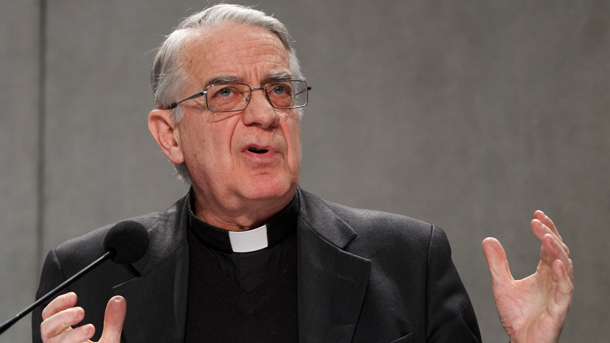“Events” that “mobilise the Church to find appropriate responses” but “should be placed in a more wide-ranging context that concerns the protection of children and young people from sexual abuse in society as a whole”. In a statement published on the Vatican Radio website (Radiovaticana.org), Father Federico Lombardi describes in these terms “the very serious question of the sexual abuse of minors in institutions run by ecclesiastical bodies and by people with positions of responsibility within the Church, priests in particular” that for some months “has been investing the Church and society in Ireland” and that over recent weeks has also involved the Church in certain central European countries”: Germany, Austria and Holland. “Certainly, the errors committed in ecclesiastical institutions and by Church figures are particularly reprehensible because of the Church’s educational and moral responsibility”, said Father Lombardi, but “all objective and well-informed people know that the question is much broader, and concentrating accusations against the Church alone gives a false perspective”. “Recent data supplied by the competent authorities in Austria shows that, over the same period of time, the number of proven cases in Church institutions was 17, while there were 510 other cases in other areas”, pointed out Father Lombardi. “It would be as well to concern ourselves also with them”.
Commenting on how the Church approached the issue, Father Lombardi said “the Holy Father recently demonstrated his own concern, particularly through two meetings: firstly with high-ranking members of the episcopate, then with all the ordinaries. He is also preparing the publication of a letter on the subject for the Irish Church”. As for the “development” of the “debate” in Germany, Austria and Holland, the director of Vatican Radio explained that “the main ecclesiastical institutions concerned have faced the emergence of problem with timely and decisive action. They have demonstrated their desire for transparency and, in a certain sense, accelerated the emergence of the problem by inviting victims to speak out, even when the cases involved date from many years ago”. By doing so, said Father Lombardi, “they have approached the matter ‘on the right foot’, because the correct starting point is recognition of what happened and concern for the victims and the consequences of the acts committed against them. Moreover, they have re-examined the extant Directives and have planned new operative guidelines which also aim to identify a prevention strategy, so that everything possible may be done to ensure that similar cases are not repeated in the future”.
In Germany, for instance, “initiatives are now being suggested to call a ‘round table’ of the various educational and social organisations in order to consider the question from an appropriate and comprehensive viewpoint”. The Church, for her part, “is naturally ready to participate and become involved”, said Father Lombardi. “The Church exists as part of civil society and shoulders her own responsibilities in society, but she also has her own specific code, the ‘canonical code’ – recalled the director of Vatican Radio – in which the crime of the sexual abuse of minors has always been considered as one of the most serious of all, and canonical norms have constantly reaffirmed this, in particular the 2001 Letter ‘De delictis gravioribus’, sometimes improperly cited as the cause of a ‘culture of silence’”. On the contrary, “it was a decisive signal to remind the episcopate of the seriousness of the problem, as well as a real incentive to draw up operational guidelines to face it”, pointed out Father Lombardi. “In conclusion, although the seriousness of the difficulties the Church is going through cannot be denied, we must not fail to do everything possible in order to ensure that, in the end, they bring positive results, of better protection for infancy and youth in the Church and in society, and the purification of the Church herself”.





